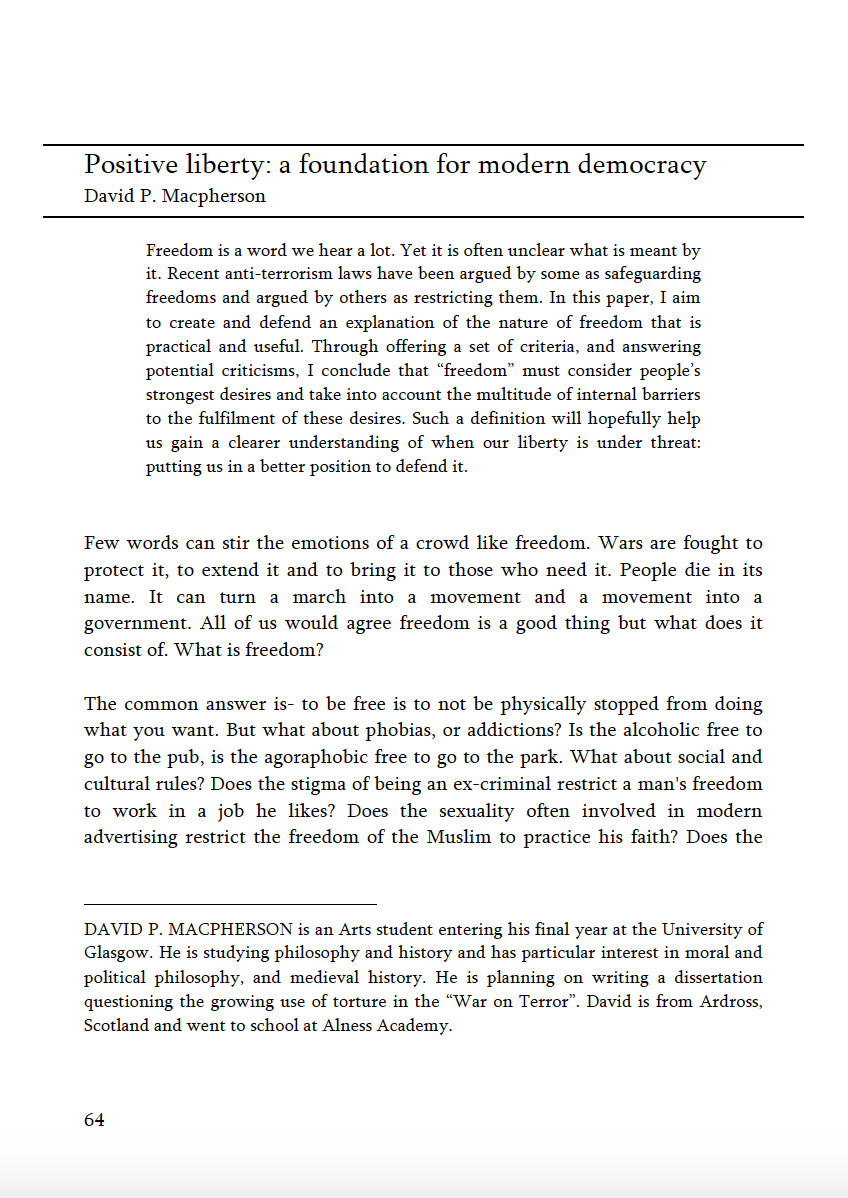Positive liberty
a foundation for modern democracy
DOI:
https://doi.org/10.36399/GroundingsUG.2.268Keywords:
Freedom, Liberty, Positive Liberty, Agency, Good, Morality, Significant ActionAbstract
Freedom is a word we hear a lot. Yet it is often unclear what is meant by it. Recent anti-terrorism laws have been argued by some as safeguarding freedoms and argued by others as restricting them. In this paper, I aim to create and defend an explanation of the nature of freedom that is practical and useful. Through offering a set of criteria, and answering potential criticisms, I conclude that “freedom” must consider people’s strongest desires and take into account the multitude of internal barriers to the fulfilment of these desires. Such a definition will hopefully help us gain a clearer understanding of when our liberty is under threat: putting us in a better position to defend it.
References
Bergmann, Frithjof. On Being Free. Notre Dame, Indiana: University of Notre Dame Press, 1977.
Berlin, Isaiah. Two Concepts of Liberty. Oxford: Oxford University Press, 1958.
Taylor, Charles. “What’s Wrong with Negative Liberty?” The Idea of Freedom Essays in Honour of Isaiah Berlin, edited by Alan Ryan. Oxford: Oxford University Press, 1979.

Downloads
Published
Issue
Section
License
Copyright (c) 2008 David P. Macpherson

This work is licensed under a Creative Commons Attribution 4.0 International License.
The CC BY 4.0 license is a Creative Commons license. This is a non-copyleft free license that is good for art and entertainment works, and educational works. It is compatible with all versions of the GNU GPL; however, like all CC licenses, it should not be used on software. People are free to: Share — copy and redistribute the material in any medium or format; Adapt — remix, transform, and build upon the material for any purpose, even commercially. The licensor cannot revoke these freedoms as long as you follow the license terms. But they must conform to the following terms: Attribution — You must give appropriate credit, provide a link to the license, and indicate if changes were made. You may do so in any reasonable manner, but not in any way that suggests the licensor endorses you or your use. No additional restrictions — You may not apply legal terms or technological measures that legally restrict others from doing anything the license permits.
Please check individual article PDF copies to see if any additional restrictions apply.







